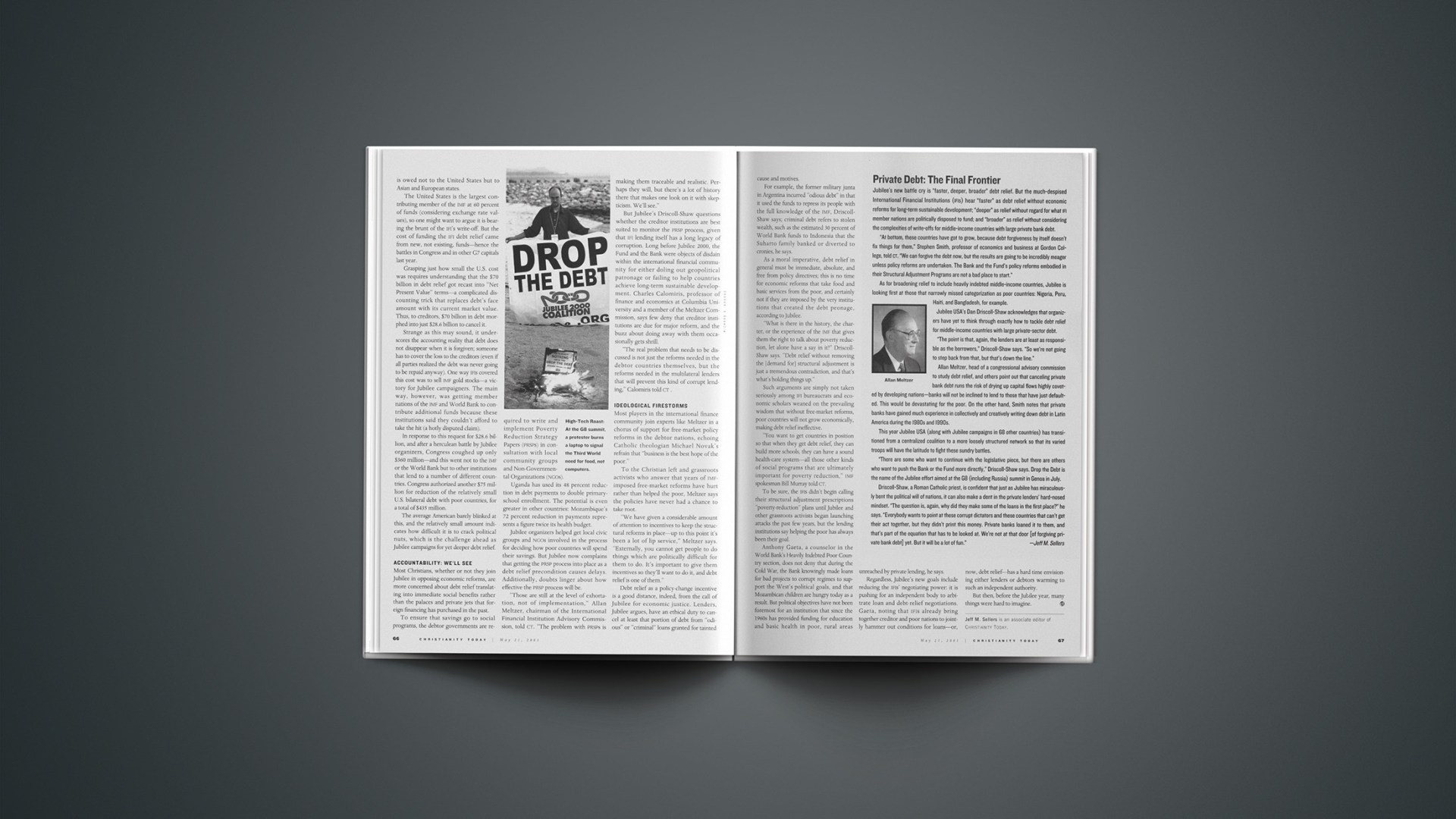“At bottom, these countries have got to grow, because debt forgiveness by itself doesn’t fix things for them,” Stephen Smith, professor of economics and business at Gordon College, told CT. “We can forgive the debt now, but the results are going to be incredibly meager unless policy reforms are undertaken. The Bank and the Fund’s policy reforms embodied in their Structural Adjustment Programs are not a bad place to start.”
As for broadening relief to include heavily indebted middle-income countries, Jubilee is looking first at those that narrowly missed categorization as poor countries: Nigeria, Peru, Haiti, and Bangladesh, for example.
Jubilee USA’s Dan Driscoll-Shaw acknowledges that organizers have yet to think through exactly how to tackle debt relief for middle-income countries with large private-sector debt.
“The point is that, again, the lenders are at least as responsible as the borrowers,” Driscoll-Shaw says. “So we’re not going to step back from that, but that’s down the line.”
Allan Meltzer, head of a congressional advisory commission to study debt relief, and others point out that canceling private bank debt runs the risk of drying up capital flows highly coveted by developing nations—banks will not be inclined to lend to those that have just defaulted. This would be devastating for the poor. On the other hand, Smith notes that private banks have gained much experience in collectively and creatively writing down debt in Latin America during the 1980s and 1990s.
This year Jubilee USA (along with Jubilee campaigns in 68 other countries) has transitioned from a centralized coalition to a more loosely structured network so that its varied troops will have the latitude to fight these sundry battles.
“There are some who want to continue with the legislative piece, but there are others who want to push the Bank or the Fund more directly,” Driscoll-Shaw says. Drop the Debt is the name of the Jubilee effort aimed at the G8 (including Russia) summit in Genoa in July.
Driscoll-Shaw, a Roman Catholic priest, is confident that just as Jubilee has miraculously bent the political will of nations, it can also make a dent in the private lenders’ hard-nosed mindset. “The question is, again, why did they make some of the loans in the first place?” he says. “Everybody wants to point at these corrupt dictators and these countries that can’t get their act together, but they didn’t print this money. Private banks loaned it to them, and that’s part of the equation that has to be looked at. We’re not at that door [of forgiving private bank debt] yet. But it will be a lot of fun.”
Copyright © 2001 Christianity Today. Click for reprint information.










